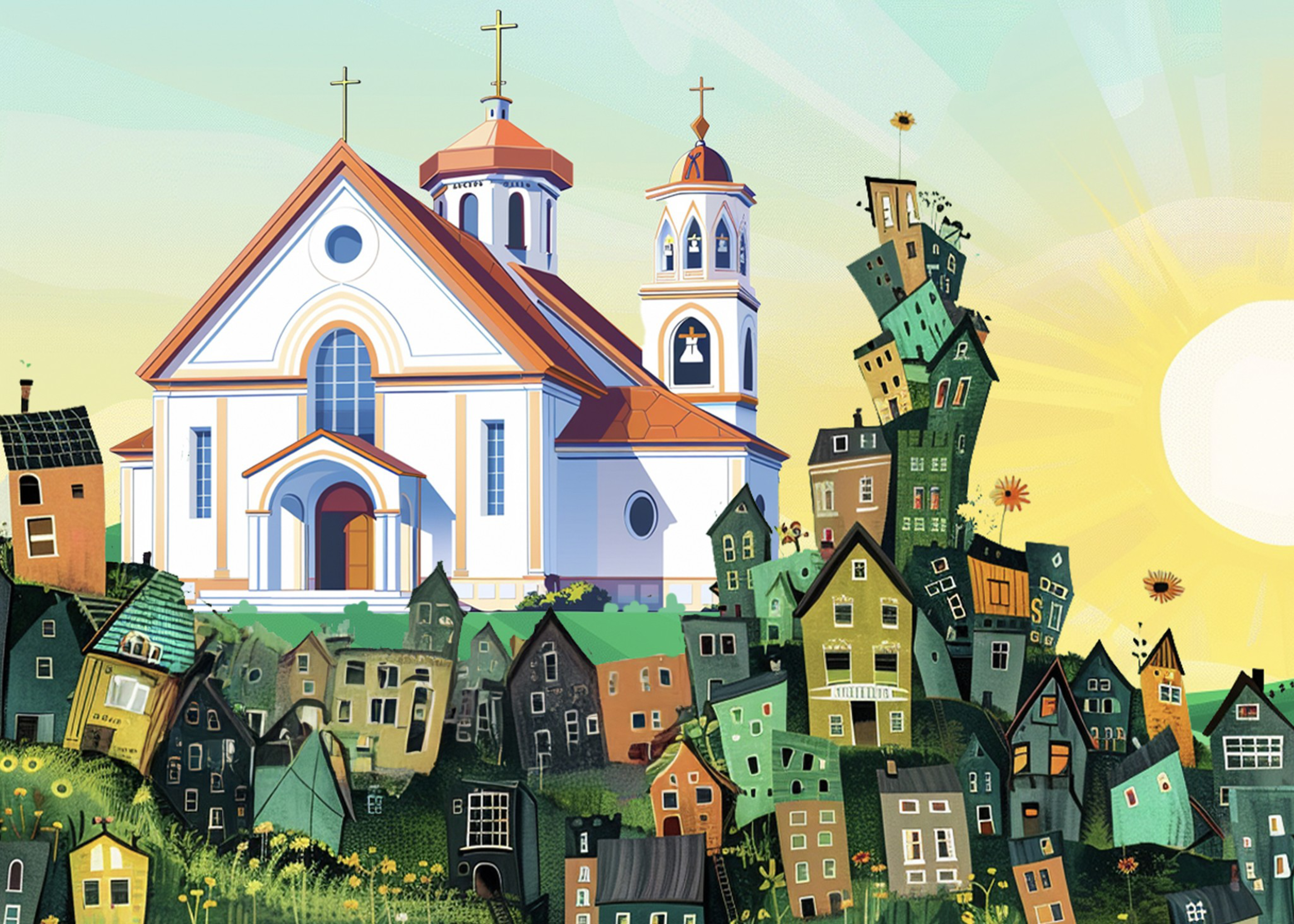In San Francisco and across California, many churches, synagogues, mosques and nonprofit colleges are sitting on excess, underutilized land—former parking lots and unused meeting spaces that are perfect sites for desperately needed affordable homes. Until now, it took years to get approval for such housing, even though many congregations were passionate about making it happen.
SB4, a new law affectionately called YIGBY (opens in new tab) for “Yes in God’s Backyard,” will accelerate approvals by streamlining the permitting process for 100% affordable housing projects on excess church and nonprofit land, creating another tool to tackle our state’s crippling housing crisis. In San Francisco alone, this could make 80 acres available for 100% affordable housing and could be a critical element in meeting the city’s state-mandated affordable housing targets.
Some churches, like St. Paul’s Presbyterian and United Methodist, have shut down due to low attendance and now want to build affordable housing (opens in new tab) on their empty properties. Others, like the Fifth Church of Christ Scientist in the Tenderloin, faced numerous appeals before an affordable housing project was finally approved in 2018. Those appeals (opens in new tab), which are no longer permitted under the legislation authored by Sen. Scott Wiener, add time, money and stress to the process and make affordable housing harder to finance and build.
Ella Rohlffs Place (opens in new tab) at St. Mark’s Square on Cathedral Hill is one of the most exciting projects in our city’s affordable housing pipeline. Conceived about a decade before the new law was passed in late 2023, it is a 94-unit, 100% affordable housing project for low- and very low-income seniors and includes supportive services. It could soon become the first church housing project in San Francisco to meet its funding goals and actually break ground.
But Ella Rohlffs Place dealt with more than 10 years of city bureaucracy (hearings, hearings and more hearings!) to determine whether the project met density and zoning requirements. After more than a decade, Ella Rohlffs Place has finally received its entitlements—a final step in the approval process. The unnecessarily long review drove up costs and delayed construction.
Thanks to new state and local housing laws, projects like Ella Rohlffs will be automatically approved if they meet all environmental and building standards, regardless of local zoning restrictions. Hopefully new housing projects will never again have to wait 10 years to be built.
St. Mark’s Square leaders are now working on multiple projects that would create an interfaith, intergenerational campus with more than 300 units of 100% affordable housing with services in the heart of the city, including 125 units for low-income families.
This time, they can rely on the streamlined new law to get the campus built faster and more affordably. Thanks to SB4, other San Francisco churches are now revisiting housing proposals that previously failed. Forest Hill Christian Church tried to build affordable housing (opens in new tab) in 2018 but faced numerous bureaucratic and political hurdles. Now, they’re trying again. I hope more faith institutions will follow this mold.
Our city and state must prioritize fixing the broken bureaucratic processes that unnecessarily prolong permitting, drive up costs and ultimately block construction of all types of housing. That means opening up new, unused or underutilized land for development, creating more flexibility in zoning, cutting permitting times and limiting unnecessary appeals.
Lawmakers in Sacramento are aiming to do just that, proposing legislation that would make it easier to convert empty office buildings to residences, make fees and permitting more transparent (opens in new tab) and simplify the construction of accessory dwelling units (opens in new tab).
California’s housing shortage acutely affects seniors, children and our most vulnerable residents. Left unresolved, it will continue to exacerbate inequalities and damage our state’s prosperity for generations.
I’ll continue to support bills that open up new land for development and creatively tackle the affordability crisis. There’s no time to waste.
Catherine Stefani represents District 2 on the San Francisco Board of Supervisors.
